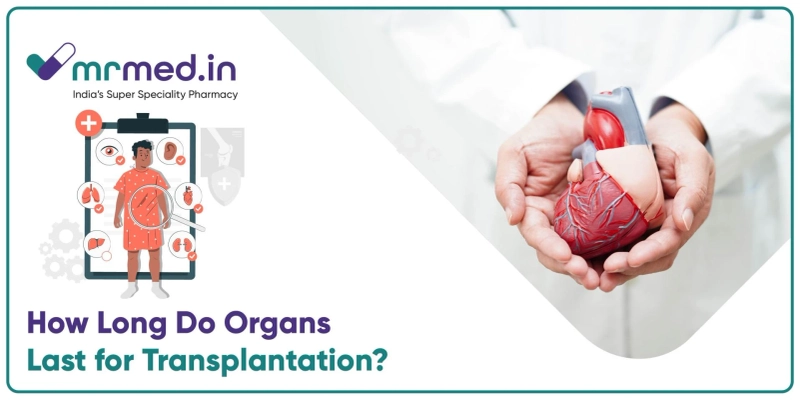Have you ever wondered how long a heart can beat without a body or how quickly a kidney must reach its new home? It’s not a sci-fi question—it’s a very real part of saving lives through organ donation. Timing is everything in transplants. Even minutes can decide whether a surgery succeeds or fails. Let’s explore the fragile window between donation and transplantation that doctors race against every day.
What Is the Maximum Time an Organ Can Stay Outside the Body?
Each organ has its own survival time once it's removed. Some last hours. Others, barely minutes. Here's a quick breakdown:
- Heart: Up to 4–6 hours
- Lungs: 4–6 hours
- Liver: 8–12 hours
- Pancreas: 12–24 hours
- Kidneys: 24–36 hours
- Intestines: 6–10 hours
These numbers depend on various factors, including preservation technique, storage temperature, and the speed of transport. The faster the transplant, the better the chance of success.
Why Do Organs Deteriorate After Removal?
Organs are made up of living cells. When they are removed, their blood supply is cut off. This cuts off oxygen and nutrients. Without these, cells begin to die. Cooling the organ slows this process, but doesn’t stop it. That’s why there's a strict limit to how long organs can survive outside the body.
How Are Organs Preserved During Transport?
Organs are stored in special sterile containers filled with a cooling preservation solution. They are then placed in an insulated box filled with ice. But freezing isn’t an option. Organs can’t be frozen like meat—they’d be damaged.
Some advanced centres use machines that mimic the body. These machines pump blood and oxygen through the organ. It helps keep them alive longer. This method is called normothermic perfusion.
What Happens If an Organ Is Transplanted Too Late?
If too much time passes, the organ may no longer work properly. The body may reject it, or the organ may fail to function properly. That’s why transplant teams work on tight schedules. Every delay, even traffic or bad weather, can put a life at risk.
What Are the Types of Organ Donations?
There are mainly two types of organ donations:
- Living donation – A procedure performed while the donor is alive. Common with kidneys and sometimes the liver.
- Deceased donation – Organs are donated after brain or cardiac death. These can include the heart, lungs, pancreas, and more.
Both are essential for saving lives. Deceased donors often give multiple organs at once, benefitting many people.
How Is a Matching Organ Found So Quickly?
Hospitals rely on a central registry. It matches donor organs with recipients using several factors:
- Blood type
- Tissue type
- Organ size
- Location
- Time on waitlist
- Medical urgency
Technology makes this process fast. Once a match is found, everything proceeds swiftly—tests, surgery preparation, and transport—all within hours.
What Medicines Are Needed After a Transplant?
After the transplant, patients must take special medicines to prevent rejection. These are called immunosuppressants. They weaken the immune system so it doesn’t attack the new organ.
Medicines like Pangraf 1mg, Mycept 500mg tablet, and Mycophenolate Mofetil are commonly used. They are often used in combination with others, such as tacrolimus, to maintain balance. These organ transplant medicines are lifelong and help avoid complications.
Can All Organs Be Donated?
Not all organs from a donor are always suitable for transplantation. Age, health condition, and how the donor passed away matter. Commonly donated organs include:
- Heart
- Liver
- Kidneys
- Lungs
- Pancreas
- Intestines
Some people also donate tissues, such as corneas, skin, or bone. Even after death, one person can save up to eight lives.
How Is the Organ Transported So Quickly?
Time is critical. Transport is often arranged by air or ground with priority access. Ambulances, helicopters, and even commercial flights are used. Some cities use drones for small organs or blood.
There’s no room for delay. Medical teams are on standby to start surgery as soon as the organ arrives. It’s like a relay race where every second matters.
Are There New Advances in Organ Preservation?
Yes, science is improving fast. Research is exploring better preservation fluids and portable machines for enhanced preservation. Some devices keep hearts beating or livers functioning during travel. This extends their life outside the body and improves transplant outcomes.
There are also trials on freezing organs using special techniques that prevent ice damage. In the future, this may provide doctors with more time to perform transplants safely.
Final Thought: Every Minute Counts
Organ transplantation is a race against time. Each organ has a short window before it becomes unusable. Thanks to innovation, improved transportation, and effective coordination, thousands of lives are saved every year. But there’s always room to grow.
Organ donation is one of the most powerful gifts anyone can give. If you’re healthy and willing, consider registering. You might help someone live a full life again.
And always remember: one decision can save many lives.



